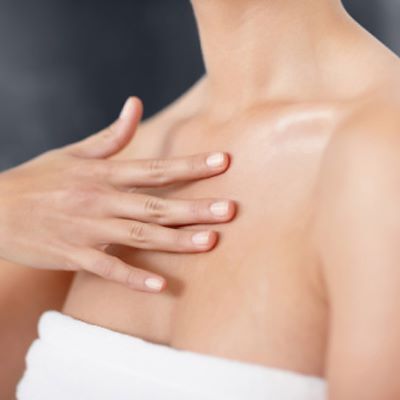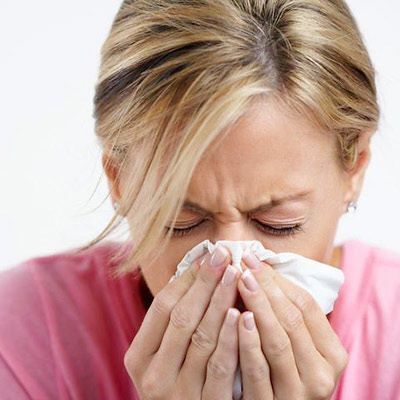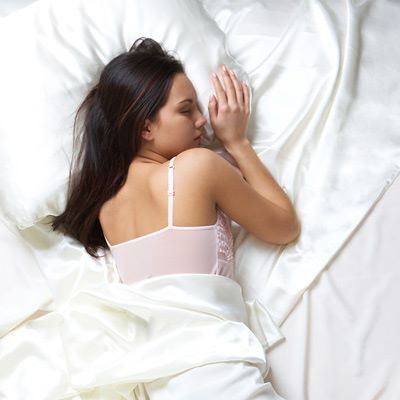Lụa tơ tằm có thể cải thiện làn da của bạn, diện mạo của bạn và trên tất cả, sức khỏe của bạn.
Tin mừng là sự xa xỉ mang tên lụa tơ tằm này ngày nay đã trở nên vừa túi tiền của nhiều người, và nó chắc chắn sẽ trở thành một phương pháp làm đẹp căn bản.

Mẹ của nữ diễn viên Jane Birkin đã rấtcó lý khi bà bảo con gái: "Khi con chẳng còn lại gì, tất cả những gì con có thể làm là mặc đồ lót lụa và bắt đầu đọc Proust" (Proust là một đại văn hào có sức ảnh hưởng lớn của nhân loại)
Đồ lót lụa tơ tằm - hay bất kỳ cái gì bằng lụa tơ tằm - luôn là một sự xa xỉ nho nhỏ, nhưng lại mang lại nhiều lợi ích lớn. Mảnh vật chất mềm mại nhưng cực kỳ chắc khỏe này không chỉ bảo vệ những con nhộng tằm trong giai đoạn đầu đời yếu ớt nhất mà còn đem lạc tác dụng khổng lồ với sức khỏe của phụ nữ. Khi được dệt thành ga giường, quần áo ngủ, và khăn quàng, lụa tơ tằm giúp làm dịu đáng kể những cơn bốc hỏa của thời kỳ tiền mãn kinh, ngăn chặn lão hóa, và thậm chí là lối thoát cho một số tình trạng tồi tệ của làn da. Hãy tiếp tục đọc để hiểu rõ tại sao Lụa tơ tằm có thể chính là loại vải của đời ta nhé ;)
Một nơi trú ẩn mát rượi khỏi những cơn bốc hỏa

Những cơn bốc hỏa, cái cảm giác nóng lên bất ngờ ở trên mặt, trên cổ và ngực, là một trong những biểu hiện phổ biến nhất (và khó chịu nhất) của hiện tượng tiền mãn kinh. Nguyên do của các cơn bốc hỏa này là do trồi sụt của hormon và ngưỡng nhiệt thấp hơn khi phụ nữ trở nên lớn tuổi hơn, bà Charla Blacker, MD- một bác sĩ sản phụ khoa ở bệnh viện Henry Ford, Detroit cho biết. Với 75 đến 85% phụ nữ đang khổ sở về hiện tượng tiền mãn kinh, bà thường khuyên họ nên mặc đồ ngủ làm bằng lụa tơ tằm hoặc ga giường lụa tơ tằm để giảm cơn nóng.
Một làn da Trẻ trung Tươi tắn

Kết cấu dệt sợi sát nhau và độ trơn bóng của sợi tơ giúp giữ ẩm cho làn da, bà Jennifer Peterson, MD- một bác sĩ da liễu tại Trung tâm Da liễu & Phẫu thuật Laser ở Houston cho biết. Khi bạn thức dậy sau khi ngủ trên một chiếc gối lụa tơ tằm, khuôn mặt bạn được dưỡng ẩm tốt hơn nhiều so với khi bạn ngủ trên ga gối cotton. Đây là một tip làm đẹp tuyệt vời cho những chị em có da khô, tróc vảy. Bà cũng cho biết thêm, những tế bào da căng mọng sẽ ít bị nếp nhăn hơn nhiều so với da khô.
Xoa dịu kích ứng da

"Nhiều nghiên cứu đã chỉ ra các đặc tính kháng khuẩn của một loại vải lụa tơ tằm đặc biệt của châu Âu có tên gọi là DermaSilk", tiến sĩ Peterson nói. DermaSilk khác với lụa tơ tằm thông thường ở chỗ nó không chứa sericin, một loại protein do con tằm tạo ra. Sericin và protein khác có thể làm trầm trọng thêm chứng chàm da và một số bệnh về da khác, vì thế tính kháng khuẩn của lụa tơ tằm giúp cho da sạch và không bị kích ứng. "Một nghiên cứu đã chỉ ra sự cải thiện rõ rệt của nhiều bệnh nhân chàm da đã sử dụng DermaSilk, trong khi không xảy ra với những người dùng cotton.", bà nói thêm.
Ngoài ra, nhờ được dệt bởi những sợi dài, trơn mịn, tự nhiên mà Lụa tơ tằm giúp giảm đáng kể sự mất nước của da, điều này đặc biệt có ý nghĩa với những người có da nhạy cảm, tiến sĩ Peterson nói. Hãy tránh xa các loại sợi nhân tạo, len và thậm chí một vài mặt vải cotton có chứa các đoạn sợi nhỏ, cứng dễ dàng gây kích ứng cho da bạn.
Hỗ trợ điều trị chứng Nhiễm trùng nấm âm đạo

Trong lĩnh vực sức khỏe phụ nữ, một nghiên cứu mới của Ý đã công bố rằng Đồ lót bằng Lụa tơ tằm có thể giảm ngứa và mẩn đỏ do nhiễm trùng nấm âm đạo mãn tính. Một nửa số tình nguyện viên tham gia nghiên cứu mặc quần lót làm bằng Lụa Derma, nửa số còn lại mặc quần lót cotton. Sau 06 tháng, 90% nhóm người mặc Lụa giảm triệu chứng, và mức tái phát chỉ còn 50%. "Đặc tính kháng khuẩn và cách dệt độc đáo của Lụa Derma ngăn chặn sự tích tụ độ ẩm, vốn là rủi ro gây tái phát bệnh nhiễm trùng nấm âm đạo." Peterson cho biết.
Nghỉ ngơi khỏi cơn dị ứng

"Người ta rất rất hiếm khi dị ứng với lụa tơ tằm."- Bác sĩ da liễu Neal B. Schultz, MD ở thành phố New York cho hay. Điều này là do Lụa tơ tằm không chứa bất kỳ chất hóa học nào có tiềm năng kích ứng, và thậm chí bề mặt vật chất của nó còn ngăn chặn những thành tố kích ứng tự nhiên (dẫn đến các bệnh về da) như bụi, nấm và mốc- ông này giải thích.
Một mái tóc khỏe và bóng

Mượt như tơ" không chỉ là một cách nói đâu bạn. Các chuyên gia làm đẹp đã khẳng định loại vải xa hoa này có khả năng giữ tóc bạn mềm mại, mượt mà và không chẻ ngọn. "Ngủ trên gối cotton sẽ khiến tóc bạn bị rối và xơ."- John Corbett, chủ một salon tóc ở thành phố New York, người gần đây đã thành lập tổ chức phi lợi nhuận Hair2Help cho bệnh nhân ung thư và những người chăm sóc họ, "Trên một chiếc vỏ gối lụa, tóc sẽ trượt trên đó, và nhớ thế, tránh được hư hỏng."
Lụa tơ tằm còn giúp bạn duy trì phong cách trong khi bạn ngủ, ông này nói thêm. Nhiều thập kỷ trước, phu nữ ngủ trên các vỏ gối bằng satin và cuốn tóc họ bằng giấy vệ sinh để duy trì kiểu tóc được uốn cầu kỳ. Ngày nay thì nó được chuyển thể thành ngủ trên hoặc trong Lụa tơ tằm. "Một trong những bí quyết làm đẹp yêu thích của tôi dành cho phụ nữ đó là dùng khăn lụa quấn tóc của bạn lại rồi đi ngủ." Corbett nói. "Tóc bạn sẽ không ra nhiều dầu, và mái tóc vừa uốn/ sấy sẽ giữ nếp được thêm một đến hai ngày."
Một đêm ngủ ngon

Theo Trung tâm Nghiên cứu Rối loạn Giấc ngủ Quốc gia tại Viện Y tế Quốc gia, có 30-40% người Mỹ gặp vấn đề với giấc ngủ. Và các chuyên gia cho biết chăn ga gối hóa ra lại là một phần của nguyên nhân. Ga gối tích tụ mạt bụi khiến da bạn kích ứng, làm cho bạn khó mà yên giấc. Trong khi đó Lụa tơ tằm, với tất cả những đặc tính kể trên của nó, sẽ đem lại cho bạn giấc ngủ ngọt ngào nhất.
"Có những nghiên cứu uy tín chỉ ra rằng bạn sẽ có những vết hằn sau khi ngủ dậy ở bên mặt mà bạn nghiêng về khi ngủ" - Jeffrey Spiegel, MD, một nhà phẫu thuật thẩm mỹ và giáo sư Đại học Boston cho biết. Một cách để ngăn chặn chúng? Dùng vỏ gối Lụa tơ tằm, nó mềm mai hơn nhiều so với cotton, và sẽ không tạo nên các nếp nhăn. Đây là ngủ thẩm mỹ đó bạn!
Nguồn: everydayhealth.com
Biên tập bởi DK SANSAN & GISY Team








